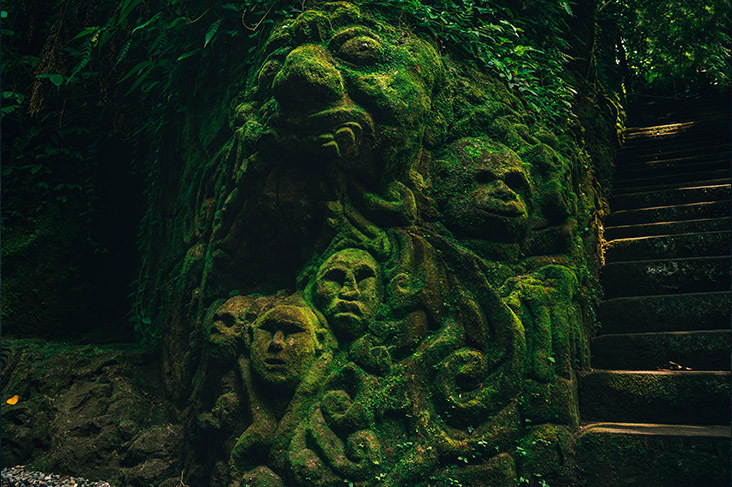Greek Mythology movies have been around since the creation of cinema as an art form. Hollywood is infatuated by Greek myths and legends – and for a good reason! In this blog post, we’re going to explore 10 movies based on Greek Mythology. In typical D&M fashion, we’re going to unearth the real myth behind the movies and how they relate to the human psyche.
If you’ve been reading the blog for a while, you already know the importance I place in the modern dramatization of ancient mythology.
From Disney movies to mythopoeic sagas, I’d like to believe that the sacred tradition of mythmaking is still alive.
Yet, I often encounter a valid criticism:
“Hollywood is commercializing mythology for gain and profit, thus stripping away the essence of these stories”.
Or
“They portray mythology inaccurately!”
While both of these statements are true to an extent, I want to add a little nuance to the discussion. So, before I jump to the Greek mythology movies, let me give you my perspective on modern myth-making.
The Continuation of the Oral Tradition
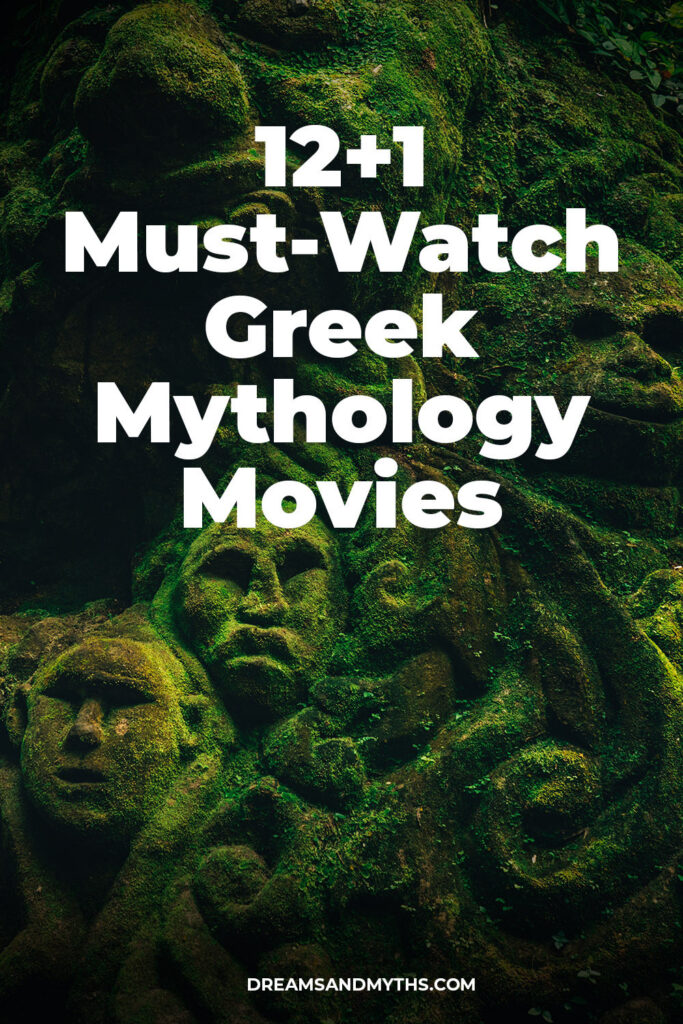
While you and I came in contact with mythology by reading the original texts or their interpretation, in reality, mythology, for most of its existence, was an oral tradition.
Wandering storytellers and vagabonds would visit different cities and recite myths and legends. This naturally altered the content and premise of each myth, in order to fit in with the cultural subtext of each region.
Of course, given that mythology is a forgotten religion, there were common themes and narratives present. But the details would change.
Take fairy tales for example. There’s a certain motif they follow but they’ve undergone multiple transformations over the years.
Myth is a dynamic platform where humanity can project inner archetypes. But the individuality of each orator and the collective subgroup of people will do what I call “cultural upkeep”; altering the story to express local eccentricities.
Creating Movie Myths
So, when a director comes in and tries to depict Homer’s epic or Norse cosmogony on screen, they’re continuing this tradition. You might argue they aren’t doing a good job or they’re altering key points in the story. And in some cases, I’d agree.
But I invite you to watch these films in the context of a never-ending proliferation of the original myth – which is the organization of the human psyche in a story-like structure.
The first movie on our list will be a perfect example of this idea.
1. 300
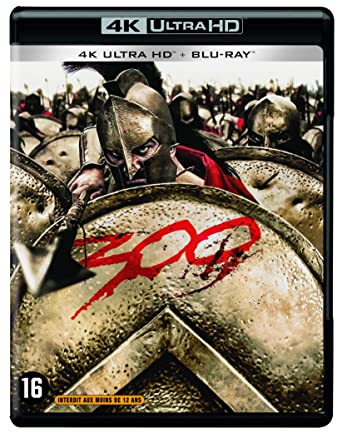
I find the “300” movie a perfect example of myth genesis. I’ll tell you why.
The Battle of Thermopylae is a very real, historical event that happened in 480 BC during the second invasion of the Persians.
Multiple layers of interpretation led to the creation of Snyder’s movie “300”. A few things you should know:
- There were way more than 300 soldiers present
- “Hot Gates” was considered a devastating defeat by the Greeks at that time
- Leonidas indeed stayed knowing he’d die
- But he did so to save the lives of 3000 Greeks that were retreating
Even though practically, it was a strategic failure, the elevation of Leonidas to a martyr boosted the morale of the Greeks, showing them that they could effectively fight the Persians even when outnumbered.
By stretching the small truths, an alternative course of events was created; the rumors became more prevalent than reality.
The 6000 to 7000 Greeks became 300 Spartans. The strategic mishap was transformed into a willful sacrifice.
Eventually, the Persians were depicted as monsters to accentuate how unfair the battle was. The mysteries of the oriental, magic and exotic animals, made their way to their ranks. Frank Miller’s comic took it a step further and added another layer of myth to the already mythologised story – which Snyder portrayed on our screen.
Still, the true message remains at the core of the “300” movie. Perhaps Spartans didn’t fight giants, ogres, and sorcerers but their code of honor shined through when they took the last stand knowing that death was coming.
Today, you’ll find this quote in the narrow passage outside of Thermopylae:
Ὦ ξεῖν’, ἀγγέλλειν Λακεδαιμονίοις ὅτι τῇδε
κείμεθα, τοῖς κείνων ῥήμασι πειθόμενοι.
O stranger, tell the Lacedaemonians that
we lie here, obedient to their words.
2. Troy

Another phenomenal movie that wasn’t as “accurate”, yet it was able to distil the essence of the Homeric epic, the customs and philosophy of ancient Greeks.
The movie Troy took a more realistic, raw approach to the rather poetic saga. We get to witness the brutality and wasting of war. Heroes chasing posthumous fame and mortals pretending to be Gods moving their invisible hand to influence the fate of whole countries.
But in my opinion, what stood at the very base of the myth is still being communicated. The universal law of the Greeks echoes inside the mighty walls of Ilium and within the ranks of the Myrmidons:
Hubris, Atis, Nemesis, Tisis
Achilles is one of the best examples, alongside the King of Sparta. They both commit crimes under the spell of Hubris (excessive pride). Then comes Atis, their mind and soul are blinded. Which pushes them to commit even more offences that will bring on Nemesis, the wrath of the Gods.
Eventually, whether through divine instruments or mere mortal mistakes, they get punished by Tisis. Their downfall.
You can find this pattern playing out in multiple characters in the film. When you watch Troy, keep a mental note and you’ll spot it as well!
3. Hercules
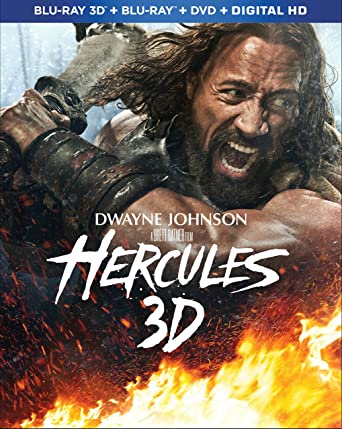
Multiple iterations of TV shows, animated series, and movies have been produced with Hercules at their center.
It’s quite fitting given that the Son of Zeus was considered a cultural hero. In many cases, he was used as a placeholder for local legends and myths to take shape around his name.
The most famous mythological narrative is the 12 Labors which are an aggregation of adventures around Greece. And that’s the premise of Hercules: The Legendary Journeys. But again, we’re seeing an alternative version of the original myth.
Disney has its version that uses the Monomyth but with a more casual spin. We get to see the training and struggles of the hero.
Lastly, the 2014 Hercules movie is perhaps the most well known but relies heavily on fantasy elements that don’t quite fit the rest of the story.
4. Wrath of the Titans
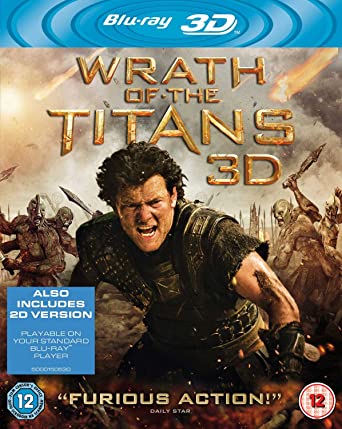
Speaking of the Heroic Age, before Hercules, the most famous monster killers were Cadmus, Perseus, and Bellerophon.
Perseus’ arc had to do with the Gorgons, specifically the beheading of Medusa.
In the first film of the franchise, Clash of Titans, we see part of how his legacy was born. But what I found more intriguing was the second film.
The premise is that because the people of Greece are moving towards rationality, signifying the end of the age of Heroes, they don’t worship Gods anymore. In turn, they’re losing their power, the power that allowed them to keep the Titans, the primordial beings preceding the Olympians, imprisoned.
This is solidifying the relationship between mortals and the divine. Mythology is filled to the brim with examples of Gods demanding sacrifice and worship or their wrath would fall upon you.
5. O Brother, Where Art Thou?
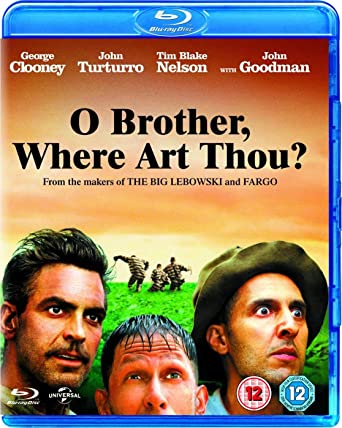
I’ve already mentioned the movie in a previous blog post but you can’t have a list of Greek mythology movies and not mention the Cohen brother’s film.
One of the best ways to bring mythology to the 21st century is by taking the structure, the form of the myth and removing the culture-specific content.
The internal, psychological mechanisms that make the original epic “Odyssey” work are still present in the 2000 movie. But the setting has changed to accommodate our modern storytelling techniques.
Still, you’ll find many references from the source text sprinkled throughout:
- The protagonist is named Ulysses Everett McGill, which is the Latinized name of Odysseus.
- He escapes prison to go back to his family, the same way Odysseus left Troy for a long journey back home.
- Sheriff Cooley torments the hero during the whole duration of his escape, the same way Poseidon did in Odyssey.
- Singing of a group of women bewitch Ulysses and his crew, resembling the enchanting song of the Sirens.
- Penny is Ulysses’ wife. Penelope is Odysseus’ wife.
- The symbolic role of the cyclops Polyphemus is played by Big Dan Teague, who happens to have a patch over his one eye, and ends up getting killed by a large, wooden cross.
And many more!
The Classics
Most of you already know that I’m from Greece. Naturally, TV would always have some sort of Greek mythology movie playing. For a kid my age, they were phenomenal!
And if I’m being honest, some of these movies should’ve been at the top. But, given how modern cinema works, their style is a bit outdated. Still, if you’re looking for faithful interpretations of the original texts pick one of them:
Keep in mind that this is a mix of greek tragedy, greek mythology, and history.
Honorable Mentions
You already know that my recommendations are… quite eccentric at times. So, this section is dedicated to some obscure films that are loosely inspired by Greek mythology and legends. You’ll find some real diamonds here, trust me!
1. Eteros Ego (2016)
What does Pythagoras have to do with the recent murders in modern Athens? This is a hidden gem straight from Greek cinema that includes multiple mythological tropes and unfolds a major mystery of the ancient world.
2. Pan’s Labyrinth
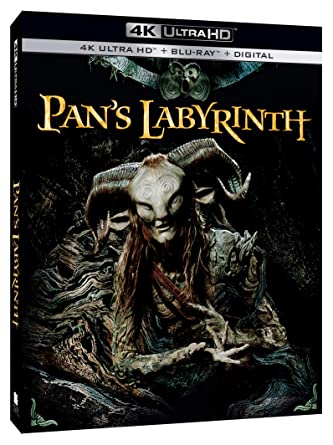
Weird and twisted, it’s a retelling of the fairly unknown mythological story of the Pan and the Faun.
The God Pan is a unique deity that has been worshipped outside of temples and structured rituals, especially in rural Arcadia, a mountainous region in Greece. A lot of legends about the Christian view of Satan comes from Pan.
3. The Lighthouse
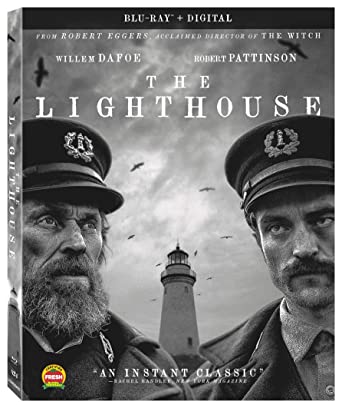
Prepare yourself for a surrealistic, visual journey in the isolated Lighthouse. One of my favorite directors, Egger tells the story of the Titan Prometheus and the primordial being Proteus through the seasick interaction between two drunk lightkeepers.
Timeless Mythology
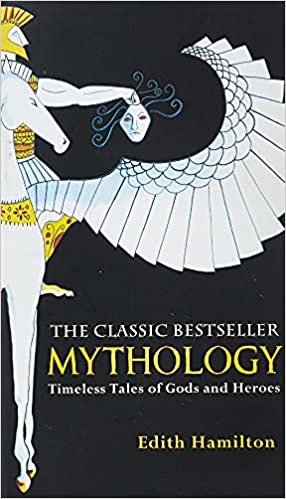
There’s only ONE story; the human experience and our interpretation of it.
Mythology can organize the internal mechanisms of our psyche and dramatize them.
And movies add another layer of sensorial perception on top that helps us further integrate the latent lessons.
I’d say that, alongside mythopoeic sagas, movies are one of the best mediums to keep mythology alive in the 21s century.
But what do YOU think?
Is it all for profit or movies are the innate desire of humans for expression?
